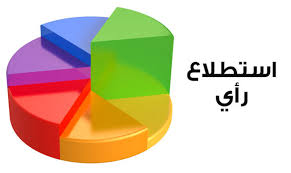- Local News
- Tue-2020-04-21 | 03:29 pm

The polls from Jordanian market research company, Analyseize Research, showed that 88 per cent of citizens "trust measures imposed by the government,” 87 per cent are currently "satisfied with the government of Jordan,” and 87 per cent feel that "Jordan is heading in the right direction”.
However, 39 per cent feel that some are not taking the curfew or the threat of the virus seriously.
When it comes to government priorities, 51 per cent thought that the government should continue the curfew as it is, 44 per cent thought that curfew hours should be reduced and certain sectors should be allowed to operate, and 5 per cent thought that the curfew should end and the Kingdom should go back to its social norms.
Ending the curfew was a debated topic, with 59 per cent saying that the curfew should end after two weeks of no cases, 17 per cent are of the opinion that it should end on April 30, 11.5 per cent suggest it end May 31, 5 per cent on May 7, and 7 per cent think that it should end immediately.
Support for a complete 48 hour weekend curfew stood at 82 per cent.
A sweeping 90 per cent are satisfied with the information provided about the virus such as health prevention measures and so on, and 85 per cent are also satisfied about the Covid-19 updates in the Kingdom such as information about new tests and cases.
However, around 38 per cent feel that the Defence Laws that were issued were "unclear”.
Analyseize conducted its fourth poll one month after the nationwide curfew was implemented, with the sample being 6,000 citizens aged 18 to 70. More than 67 per cent of the citizens were from the middle of the Kingdom, around 23 per cent were from the North and a little over 9 per cent from the South.
The virus’s impact on emotions was tested in the study, with 88 per cent of respondents feeling that the virus constitutes a true threat to the lives of people and 55 per cent claiming to be in a state of worry and panic.
When it comes to supporting the government’s economic decisions as well as the ban on praying in mosques during Ramadan, support levels stood at 62 and 66 per cent, respectively.










